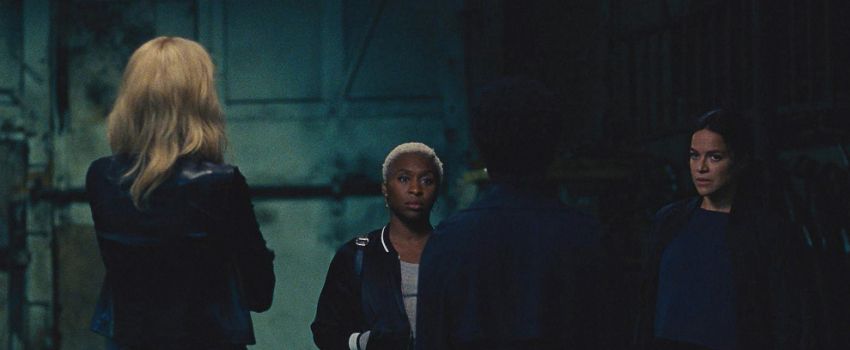A bedroom embrace is wrenched away and instantly replaced with the rear compartment of a getaway van, one door wrenched off its hinge and sparking on the asphalt, as a lover’s playful snarl becomes the shriek of a bullet, ricocheting around the exposed interior.
It’s this electrifying jump cut that kicks off Widows; Steve McQueen’s perhaps unlikely follow-up to 2013’s 12 Years a Slave, which won him the Oscar for Best Picture. Taking the premise of Lydia La Plante’s 1983 TV series of the same name – that of three bereaved women carrying out a heist to pay off their late husbands’ debt – the film layers deft topical commentary into slick, expertly constructed.
When Harry (Liam Neeson), the master thief, explosively meets his end, along with the rest of his crew, Veronica (Viola Davis) finds herself on the hook for $2 million. Unable to go to the police, she turns to her fellow widows to carry out an ambitious job; the final one detailed in Harry’s book.
The opening sequence, which inter-cuts the botched job with would-be domestic bliss, neatly establishes who these women are – and the deadbeats whose mess they now need to clear up. Alice (Elizabeth Debicki) is a glamorous punching bag, who views men as a means of survival. Now that Florek (Jon Bernthal) is dead, her mother (Jacki Weaver) suggests escorting to see her through college. For Linda (Michelle Rodriguez), men are a financial jeopardy to her and her two kids: all the money her career-criminal husband (Manuel Garcia-Rulfo) makes goes on gambling.
For Belle (Cynthia Erivo), babysitter and single mum turned getaway driver, men aren’t even a consideration; unless she’s sprinting past a bunch of them, jeering and cat-calling at her on her way to the bus.
Co-scripted by Gone Girl‘s Gillian Flynn, Widows is also a depiction of a society where every interaction is transactional. Crime boss Jamal Manning (Brian Tyree Henry), to whom the debt is owed, is running to be alderman of Chicago’s 18th ward. He views the money-making opportunities offered by politics as a safer alternative to selling drugs, even as his dead-eyed brother Jatemme (Daniel Kaluuya) stalks the periphery, brutally dispensing harm to inept gangsters and unfortunate bystanders alike.
His political opponent, third-generation politician Jack Mulligan (Colin Farrell), whose belligerent father (Robert Duvall), views the seat and all it entails – including the kick-backs – as theirs by right. Only Bash (Garrett Dilahunt), Veronica’s driver, seems to be operating from a sense of loyalty; chauffeuring her around the grey, wintry streets of Chicago – as lensed by McQueen’s longtime cinematographer Sean Bobbitt.
The world of Widows is one that, at best, fails to account for women – the subtle way Veronica has to stretch to see through the keyhole of her own apartment – and people of colour, or else denies them agency, and, at worst, is outright hostile – there’s a strand of racial tension wound through Jack and Veronica’s relationship, stemming from mutual tragedy.
As Veronica says, not without bitterness, “No one thinks we have the balls to pull this off” and that, ironically, may be what saves them.
If its climax falls back on an inevitable thriller cliche, it’s one that’s at least underlined with earned emotion. It takes nothing away from Widow‘s enduring image: that of Veronica in her grey trench-coat, carrying her white Yorkie – whose well-being is a consistent source of tension – nursing a deep wound, but unbowed by grief or pressure.
